#*lizzi basu
Text

Confession:
"I love Saraswati's new hairstyle. It looks so soft. I want to run my hands through her hair."
41 notes
·
View notes
Text
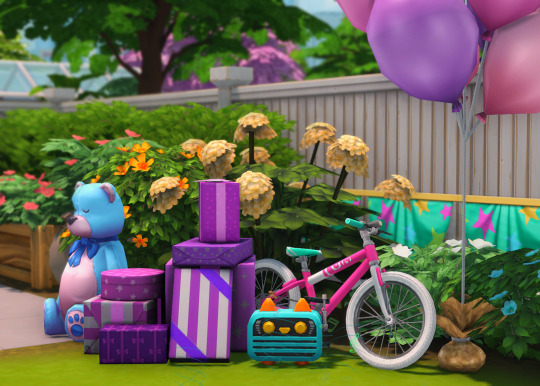




lizzi's birthday !!!
beginning | next
bonus
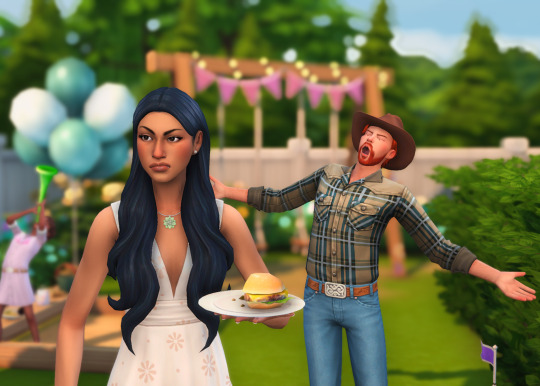
when ur bestie screams happy birthday while u were just tryin to eat ur burger.......they never grow up do they 😭
#rossi legacy#gen 3#legacy spin-off#sims 4#sims 4 legacy#the sims 4#family dynamics legacy#sims 4 challenge#*lizzi basu#*tori basu#*riven anansi eggleston#*maddox knight#*yuna mori rossi#*ishaan basu#valerie knight#*olivia kim-lewis#alessa rossi#*misty eggleston#*rainn kim-lewis#maxon knight#god thats a lot of fucking names
2 notes
·
View notes
Text
Stalkeyes’ Big Bumper Post of Assorted Psychonauts 2 Headcanons
Because I’ve been slow to fully embrace this hyperfixation so I’m just gonna dump as many things as possible here - in convenient bulletpoint form! Again, BIG SPOILERS for Psychonauts 2 (probably).
Lizzie and Norma:
You’ll already know this if you’ve read Fire on Ice, but their surname is Difficulty, because dumb puns.
They grew up in a rural town, surrounded by woods - since Liz seems to enjoy hunting in the wilderness and calls Raz a ‘poor city kid’. The town’s chief point of interest is the outlet mall just next-door. Their father, Harding Difficulty, is the town judge (hence Norma’s ‘when my parents hear about this!’ threat).
Lizzie knew of her powers from an early age and took pride in them, thinking being a psychic was really cool (pun intended). As kids, she used to enjoy spooking everyone by playing into the ‘creepy psychic twins’ angle. By contrast, the straitlaced, academically-minded Norma discovered her powers much later and tried to hide them, embarrassed by her sister’s antics; she always wanted to fit in and ‘be normal’ (appropriately enough).
Norma’s pyrokinesis had a habit of growing out of control when she’s understimulated. She learned this the hard way when, one Christmas when she was 8, she got bored waiting in line for a Santa’s Grotto and accidentally torched the place to the ground. Her own father sentenced her to spend that Christmas in juvie, and even now he can’t stop guilting her over it. She later attended Whispering Rock in the hopes that they could teach her psycho-safety, and Lizzie insisted on coming with - to their surprise, the counselors really sold them on the idea of becoming Psychonauts, and Norma stopped hiding her powers, becoming much more confident, driven and competitive. She and her sister effectively (and ironically) swapped roles, with Norma impulsively thinking up schemes to get ahead of the competition, while Lizzie, rebel extraordinaire, was the one telling her to slow down and chill (again, pun intended).
Yes, they like puns. Not that they’d ever admit that.
Norma was a big fan of Sasha Nein in particular, and was overjoyed at becoming his intern after attending Whispering Rock for years. Needless to say, she was kinda peeved when they’d barely even gotten started before Nein began raving over the psychic airwaves about this kid he met at camp, and then said kid showed up to the Motherlobe - not only being accepted into the intern program after only two days, if that, BUT he’d even been on a real mission to rescue the Grand Head of the Psychonauts, accomplishing in days what the other interns couldn’t do in years. Needless to say, she wasn’t exactly unbiased when she concluded that Razputin must be the mole.
Meanwhile, Lizzie could tell her sister was just jealous but was too laid-back to press the issue, knowing Norma well enough that she’d have no success anyway (when she said about Raz ‘I just think he doesn’t want us to see him cry’, she was thinking of her). Liz was content with just teasing the poor kid.
Lizzie didn’t hate her mentor, far from it, but found him kinda frustrating - they seemed to hit it off at first, but apparently she said the wrong thing or just talked too loudly because soon Agent Boole was oddly eager to send her away. She did make an effort to get him to come out of his shell, but eventually gave up, lest she be reassigned to another mentor who was less hands-off.
Gisu:
Her full name is Gisu Karmakar Tripe. She’s of mixed American, Indian and Persian/Iranian ancestry. This is based mostly on Gisu being a Persian word, while her VA’s name is Poonam Basu, which are apparently both names of Indian origin (I say this without knowing if they’re actually Indian, just to be clear). Also, the shawl Gisu wears reminds me of an Indian Dupatta, especially the way it hangs loosely and doesn’t always cover her head.
She’s the older sister of Vernon from the first game. Unlike Sam Boole, she doesn’t like to advertise this fact, sometimes even omitting the ‘Tripe’ part of her name when introducing herself. This is based solely on three things: 1, their physical features are kinda similar, 2, I love the idea of the energetic skateboarder being related to the world’s most boring kid, and 3, I like Vernon. :V
She enjoys hip-hop music, and before joining the Psychonauts she wanted to be a rapper. Morris ‘hired’ her onto K-LOBE because her gadgeteering expertise began with tinkering with radio equipment and DJ decks. Sometimes she records people talking (usually her brother) and makes them into backing samples.
She enjoyed skateboarding even before discovering her psychic powers, though she never wanted to go pro - the sports life wasn’t for her. In fact, she discovered her powers when she tried pulling a 360 Karma Chameleon over a tug boat and would have collided with a drunken sailor had it not been for levitation kicking in.
She was quietly freaking out when Raz seemed to disappear from the base during the third act, thinking he might have been injured or even killed by the Psychoseismometers she sent him off to vent. After making sure Raz was safe, she felt a sudden urge to talk to Vernon.
She thinks Dion is kind of a dork, and after dispelling his misconceptions about psychics finds them more funny than anything else, while appreciating that he was willing to change his views. She also encourages him to go easier on Raz, still kinda shaken from thinking she might have accidentally gotten him killed (the fact that Raz saved her brother’s brain certainly helped).
The Aquato Family:
Dion is in fact Raz’s half-brother - Augustus is his step-dad. This one’s a little complicated. It’s repeatedly stated that the Deluge of Grulovia happened 20 years before the story, and Augustus at that time appears to be around Raz’s age - 12 at the very oldest - yet he has a 16/15-year-old son. Assuming he was 12 back then, that means he himself was 17/16 when Dion was born, which, while barely over the age of consent in the US, still seemed a bit too quick to make that commitment to me. Thus, Donatella was 3 or 4 years older than Gus, and when they first met, she already had a baby son she’d gotten from a previous relationship about a year earlier (she doesn’t remember who the father is, probably a brief fling while the circus had stopped by the city). This gave them a few years to bond - Gus wowing Dona with all the stories of the prestigious Aquato Family Circus back in Grulovia - before they had their first child together, Frazie (aged 13 in the present - she grew fast). This also explains why Dion is the only one of the Aquato children without psychic powers (except possibly Mirtala, though I imagine she might have dormant abilities), since everyone else got them from Augustus.
Speaking of Augustus, if he was 12 after the Deluge, then he’d be 32 in the present, even though he looks and sounds old enough to be in his 40s. This can be attributed to his choice of hairstyle, and the stress of traveling circus life and acrobatic training taking its toll on him; his eyes have dark circles from lack of sleep, while his voice is gravelly from an old smoking habit his Nona got him into (and eventually quit for the sake of the children).
The Psychic Six:
Continuing from the age thing, the Six were of varying ages back when they first formed - the oldest members were Ford and Lucrecia, since Ford was the founder and both look positively ancient in the present, probably in their 70s or even 80s, meaning they would have been in their 50s or 60s at the time of the Deluge (to me, memories of Lucrecia appeared older than the memory of Maligula, since they were more accurate representations of her as a person, while the image of Maligula was a dramatized anthropomorphic personification of what she turned into. The fact that she had pink skin when Nona doesn’t probably sealed it :V).
Meanwhile, the youngest member was Bob, since he generally came off as the most youthful, both in appearance and outlook. He appears much older than he is in the present because his lifetime of alcoholism finally caught up with him.
Compton may have had some bad experiences with teenagers when he was younger - I imagine he was always kinda socially withdrawn even before the incident at the animal shelter, relating better with animals than with people (ironically, this meant he got on well with Bob, though not to the same extent as Cassie). This meant he was a target for mean older kids - just like his grandson Dogen would eventually become - an experience that stuck with him. He was reluctant to interact with Lizzie for partly this reason (plus, he’d heard stories of how older kids picked on Dogen, too), and Lizzie’s brash, devil-may-care attitude clashing with Compton’s insistence on quiet and tidiness certainly didn’t help. After Raz helped Compton overcome his self-confidence issues, he and Lizzie met up again and apologized to each other (because that sort of thing is my jam).
Cassie started writing again after the events of the story; her big comeback was The Maligula Within Us, essentially a memoir of what really happened during and after the Deluge and a treatise on how to keep one’s own personal Maligula in check (with contributions from Raz and Adam Joseph Gette, budding historian that he is).
The Zanotto Family:
If Bob Zanotto is Truman’s uncle, he must have had a sibling, yes? He did have a brother - Truman’s father and Lili’s grandpa - but he wasn’t psychic. It’s for this reason he never really got involved with the Psychonauts. Ironically enough, Truman took more after him than he did with Bob, since his dad was a businessman who emphasized the importance of making social connections, helping Truman in his development as a keen social observer, intelligence gatherer and manager, that lead to him becoming the Grand Head (notably, he was the only person in the base who noticed anything off with ‘Nick Johnsmith’). Somewhat to everyone’s surprise, too; no-one suspected a Zanotto would ascend to the position. While not heartless, he always tended to be too business-oriented for his uncle’s tastes, and never really got along well with plants, abandoning his development of herbaphony in favour of other skills.
Conversely, Lili’s mom got along well with Bob and seemed to share some of Bob’s sentiments about Truman, which lead to them getting divorced when she decided he was too much of a workaholic (she didn’t really agree with Truman’s decision to fire him, either). Lili stayed with her dad because she preferred being around fellow psychics, even if she took more after her mom and was disillusioned with the Psychonauts, inheriting her mom’s belief that they’d strayed from their goal of helping people. She almost developed her herbaphony as a display of rebellion against her father, emulating the great uncle she never met (well, maybe she had met him as a baby, but still). Truman became all too aware of this and made an effort to connect with his daughter more, but only succeeded in embarassing her. Needless to say, this all contributed to Lili’s belief that she’d been a terrible daughter.
Miscellaneous:
The world that Psychonauts takes place in is a lightly fictionalized and cartoony version of our Earth - close enough to our world that real countries like Germany, Brazil, France and Russia exist, along with historical figures like Washington, Nostradamus and Napoleon Bonaparte, but also different enough that there are people with naturally blue skin wandering around and wacky fictional countries like Grulovia also exist (plus whatever country the Lady Luctopus was in - probably Monaco or a Monaco-esque area, since they were speaking a language that was like French but not quite). I feel it hearkens back to the zany cartoons of the 60s and the 90s, which featured similar Earth-but-different settings.
#Psychonauts#Psychonauts headcanons#headcanons#longpost#Non-GF-related beeswax#Psychonauts 2 spoilers#Norma#Lizzie#Gisu#Vernon Tripe#Razputin Aquato#Augustus Aquato#Dion Aquato#Donatella Aquato#Lucrecia Mux#Compton Boole#Cassie O'Pia#Bob Zanotto#Truman Zanotto#Lili Zanotto#If you couldn't tell I wanna spread this around :V
141 notes
·
View notes
Text
Other Music documentary (2019- directed by Puloma Basu and Rob Hatch-Miller) review by Dina Hornreich

“It is harder to put together than to take apart.” A plain and not-so simple comment coming from the former Other Music Record Store co-owners, Josh Madell and Chris Vanderloo, who are prominently featured in the film, as these words underscore a scene in which their crew is dismantling their once hallowed CD sales racks in preparation for the store’s reluctant closure. OM used to herald as a beacon of hope in NYC’s bustling offbeat East Village neighborhood, a cultural hub known as St. Marks Place – not far from New York University. (If you asked any New Yorker for directions, they would enthusiastically tell you to simply “get off at the stop for Astor Place Station from the #6 or #4 [subway] train: you will see the gigantic cube immediately after exiting the station...can’t miss it!”)
The OM store opened its doors in 1996, and officially closed in 2016. Twenty years is a very good run for any kind of establishment such as this one, especially in the Big Apple – a fact that was not taken lightly by the two makers of this film who each were an employee and a regular customer at the establishment themselves! And like the store itself: the film is an endeavor for music nerds by music nerds. (And, obviously, this Dagger Zine review is no different.)
For creatively inclined weirdos like us, OM was a place of refuge. It was a major meta-musical mecca that happened to take the form of a retail outlet which is a very bold endeavor to consider: an unusual existence as a cultural outlet that strove to challenge our knowledge, expand our awareness, and promote the discovery of completely unknown (even uncomfortable) expressions. This mentality was not conducive whatsoever to the slick sales-driven experience one might come to expect upon shopping for any traditional kind of consumable commodities. And we certainly did not receive that kind of treatment while shopping there anyway!
OM’s purpose was contrary to basic principles of economics because it was run by artistic types who believed in a much higher purpose behind what they were selling: it was a community focused approach. In doing so, they completely confounded the basic notion that we were purchasing mere commercial products to be unloaded for profit (like toothpaste). The store’s very existence was a subversive act of culture jamming in and of itself. This information in conjunction with a solid awareness of the cut-throat and risky nature involved with doing any kind of enterprising endeavors in NYC is extremely pertinent. (I was once told that any restaurant in NYC would be far more successful if it were in another location simply because the competition alone would be considerably less stiff.)
Instead, they were offering something very unusual to their customers by incorporating some kind of pseudo-quasi-intellectual discourse using extraordinarily inventively stylistic fusions and/or varied often inconceivable sonic experiments to create such astute, pithy, and massively passionate descriptions that would be entirely ineffective as a sales strategy to the less tolerant/picky shoppers at the overpowering Tower Records across the street. The store had a unique energy that was entirely its own manifestation. Bin categories had mysterious names such as: in, then, decadanse, etc. that baffled even the artists whose own work was often filed underneath them, as evidenced by the hesitant testimony provided by indie rock luminary Dean Wareham (of the bands Galaxie 500 and Luna). In fact, these idiosyncratically descriptive insider taxonomies were typically used as a rite of passage upon orienting new store employees to OM’s unique aesthetic.
The delectably raw live in-store performance footage of more acquired tastes, but definitely well-loved by those “in the know,” included bands who simply could not have thrived in the same ways at more conventional outlets: The Apples in Stereo, Neutral Milk Hotel, The Rapture, etc. The most delightfully peculiar act might have been delivered by a performer named Gary Wilson whose legendary appearance began with him surreptitiously entering the store while beneath a blanket and then (from behind the scenes, presumably) covering himself in talcum powder prior to seizing the stage with unabashedly alarming flamboyance – with only the playful tunes that would we expect to appropriately match that indelible image so gloriously!
And that was precisely the point: they were unequivocally rebelling against more conventional music consumption habits by offering an entirely different kind of taste-making experience that was kind of less palatable overall – and, in doing so, they even helped launch the careers of some important figures: Vampire Weekend, Animal Collective, and Interpol. The description of the “consignment” process for emerging artists who managed to attain a place on their sanctified shelves seemed extraordinarily modest considering the scope and nature of the impact it offered. There was a lot of social currency behind the OM brand.
The inclusion of a parody skit starring Aziz Anzari and Andy Blitz (available here as well https://youtu.be/YN1mKiQbi4g), followed by the various customer testimonials (including actor and musician Jason Schwartzman), indicated that they may have exuded more than a hint of an unflatteringly, even off-putting, air of NYC hipster pretentiousness akin to that portrayed in the Nick Hornby book, Stephen Frears movie, and/or the new Hulu series (involving both Hornby and Frears): High Fidelity. However, there were clearly very good reasons for them to do this: They represented an extreme mishmash of strange characters who collectively embodied all the historically marginalized shapes, sizes, colors among other attributes that would not have been celebrated (or considered marketable) elsewhere. If they weren’t a little snooty, they probably would have been mocked entirely – as evidenced by an astute and pithy comment by a long-time store employee describing Animal Collective as appearing like a “sinister Fraggle Rock on acid.”
These artists never aspired to becoming real “rock stars” anyway – on the contrary, they embodied the antithesis of that concept. (A point made abundantly clear as they bookended the film with footage of ordinary musicians simply marching through the streets of NYC.) Literally, OM offered shelter to those of us who are able to truly appreciate the anthemic idea behind the phrase: “songs in the key of Z.” It was a place for gathering the outsiders among outsiders, in other words.
It is impossible to ignore various impressive personalities who made appearances throughout the film, in both large and small roles. This includes but is not limited to major NYC scene contributors such as Lizzy Goodman, author of the equally compelling and similarly themed book: Meet Me in the Bathroom: Rebirth and Rock’n Roll in New York City 2001-2011. Footage in the film included key figures in influential bands including: TV on the Radio, Le Tigre, The National, Vampire Weekend, Yeah Yeah Yeahs (all of whom are also featured in Goodman’s book). You can also see glimpses of varied lesser known, yet supremely compelling figures of that era, including writers Kandia Krazy Horse and Geeta Dayal, and former store employees such as Lisa Garrett and Gerald Hammill.
These conversations take place until we eventually witness the demise of Tower across the street (and its many ilk of like-minded big box stores) which clearly signaled the ever-looming end for Vanderloo and Madell’s opus-like enterprise. A point that musician Stephin Merritt, best known for so many stellar masterpieces with his longest-running outfit, The Magnetic Fields, emphasizes upon casually observing the degrading presence of a fitness studio franchise that has since taken up residence in the spot that used to house Tower’s second floor. (I failed to try and restrain myself from recalling a new sense of irony from the lyrical lines that Merritt himself had written and recorded around 1991: “Why do we still live here.. In this repulsive town? All our friends are in New York.”)
There is also a bit of an underlying insinuation only apparent from random customer shots throughout the store regarding a possible impact from the Rough Trade Records shop that had recently opened in Brooklyn around the time of OM’s closing. This is exceedingly apparent to this biased writer herself who personally ventured out to that Williamsburg location last year for an in-store performance with NYU Punk Professor, Vivien Goldman, who had just published her own book Revenge of the She Punks. An event whose audience clearly included some members of the OM community featured in this film as I recall the store had heavily lauded her Resolutionary compilation album release prior to its official closing.
As the film successfully affirms the significance behind record store culture (especially in a global hub like NYC) which has long been hailed as a sacred gathering space for various misfits and weirdos who might find significantly less understanding and/or productive social outlets in other circumstances; its unavoidable bittersweet conclusion dramatically asserts how disappointing it is for us to witness the complete loss in their consistently tenuous financial viability as we are well into the digital information age – if not for the simple fact that paying for music (or any kind of intellectual property) is more commonly perceived as an anachronistic practice which is a clear and painful affront to all the prescient creative geniuses who are struggling to make an honest living off their work.
The film highlights the many multifaceted aspects that we fondly and endearingly associate with the appreciation of music that lies at the heart of the irrational fervor behind record collecting culture: the smell of the vinyl itself, the enormous visual impact around the artists’ choices for cover art, the substantial weight it possesses when we remove it from the sleeve, the delicacy necessary to handle vinyl so as to minimize any potential damage, its often very limited quantities as it is not cost-efficient to produce (the obscurity is intrinsically part of the exhilaration surrounding this “hunt”) among other substantial inconveniences that more or less confirm this as an unproductive – if not entirely illogical – endeavor overall!
Of course, it has always been very apparent to us that we were engaged in some insanely addictive bizarre kinds of quests that kept leading us to this absurd little locale in the first place – desperately trying to pacify some nebulous and insatiable deep cravings that we couldn’t always articulate… yet it always kept us coming back for more! As Mac McCaughan from the bands Superchunk and Portastic, as well as co-owner of Merge Records, astutely concludes: “They knew what you wanted before you knew.” (Of course, they did!)
The overarching and staunch message of this film is most apparent during the final closing scenes when we are eavesdropping on a conversation that the former co-owner, Josh Madell, is having with his young daughter about simply streaming the Hamilton Soundtrack on Spotify because the vinyl copy would have cost her $90 in the store. Perhaps even more ironic, of course, might be suggested by the very relevant context in which we find ourselves today: the annual Record Store Day celebratory event with which the film’s re-release was planned to coincide obviously could not happen. As a result, I was reluctantly watching it, albeit self-consciously, on my 13” laptop screen in my home office during the self-quarantine of COVID-19. Half the proceeds for the “tickets” were to be used to support one of my favorite local record shops here in Denver, CO, Twist and Shout, who may or may not be able to reopen as this pandemic situation evolves.
There are bigger questions to contemplate as the tide of change has only just begun in ways that only a tragedy, such as a worldwide pandemic, can facilitate for even the most obstinate luddites who have no choice but to incorporate regular use of digital formats in their daily habits – and we totally have, of course! This documentary remains as unequivocal evidence of the viability behind OM as it stood as an historic cultural hub that transcended the fundamental premise behind a commercial retail outlet. (Even though retail was once considered the only aspect of the industry where substantial money could be made. In fact, a measure of an artists’ success was often the number of albums they actually sold.) As its impact clearly exceeds its impressive years as a store-front operated business, it may also indicate a shortcoming in mainstream outlets who tend to ignore, silence, dismiss, and otherwise relegate the disempowered voices in our community – which, of course, are the major reasons that forced us to seek out these alternate forums in the first place.
The role of arts and culture for society is in fact to provide the very same opportunities that OM offered to us, which is (to reiterate that point from above) to provide an opportunity for discourse that challenges our knowledge, expands our awareness, and promotes the discovery of the completely unknown (even uncomfortable) expressions. These conversations give our lives meaning and force us to continually improve ourselves on many levels. While such commentaries could be considered an acquired taste or even an entirely esoteric endeavor, the crucial sensibilities they offer hold enormous potential for a world that honestly seems to need to hear from us… now more than ever!
If only we could find a better way to invite the integration of our perspectives into the bigger conversations? So that we can participate in the innovations for the changed world that will be waiting for us – and to ensure that it will be a more inclusive place for all of us. Which is perhaps what we ultimately (and so desperately) need, want, and deserve. The alternatives seem frighteningly Orwellian… at the risk of seeming a bit histrionic.
http://www.factorytwentyfive.com/other-music/?fbclid=IwAR3wtvtOKKC46YmfwjB6zv0wp5GMh4YBHFuWk0aLOti5m2NSs8PFChjrK4M
youtube
1 note
·
View note
Photo

0 notes
Text
Neil Basu says 100 counter terror police are working on the case and the victims are still in a critical condition
'We continue to investigate how these people came to be exposed to this substance'
— Lizzie Dearden (@lizziedearden) July 4, 2018
0 notes
Text


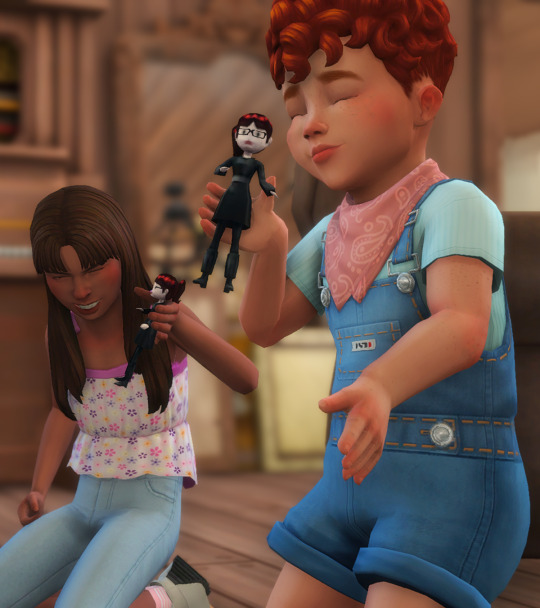



grandma and grandpa brought over the cousins 🥰 tori broke the dollhouse from playing too hard and then had the gall to look distraught as if it wasn't her fault 💀
beginning | next
#gen 3#rossi legacy#legacy spin-off#the sims 4#ts4#ts4 legacy#alessa rossi#eugene knight#*lizzi basu#*maddox knight#*tori basu#valerie knight
4 notes
·
View notes
Text

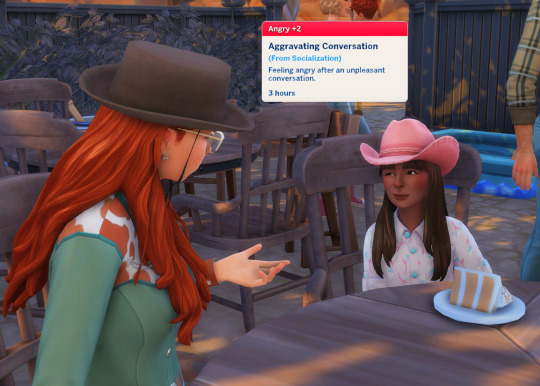
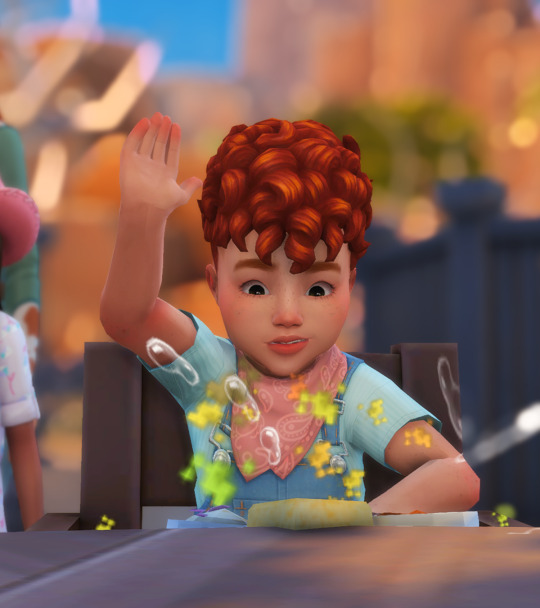
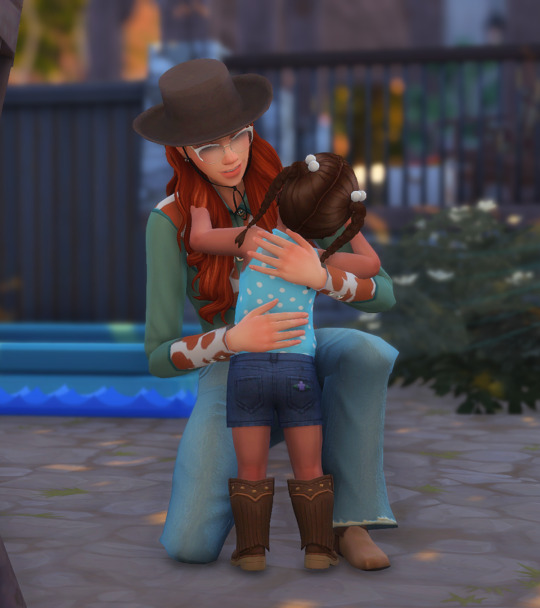


tori is engaging in the good ol' fashion past time of bullying mariella (ergo her mother) while lizzi is the sweetest little niece in the world 🥰 towards the end of the party mari got a text from aponi...
beginning | next
#had to break the party into two parts#im really proud of#how i edited that ingame message#on the last one 😊#gen 3#rossi legacy#legacy spin-off#*lizzi basu#mariella knight#*tori basu#*maddox knight#the sims 4#ts4#the sims 4 legacy
2 notes
·
View notes
Text
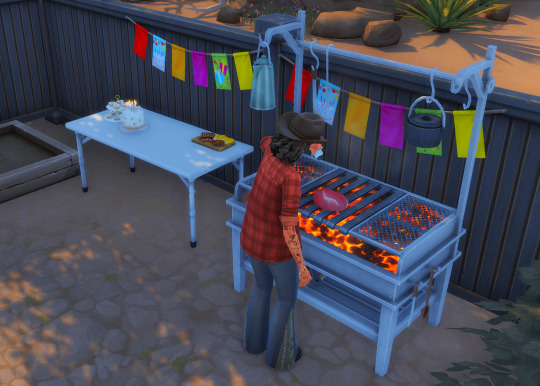

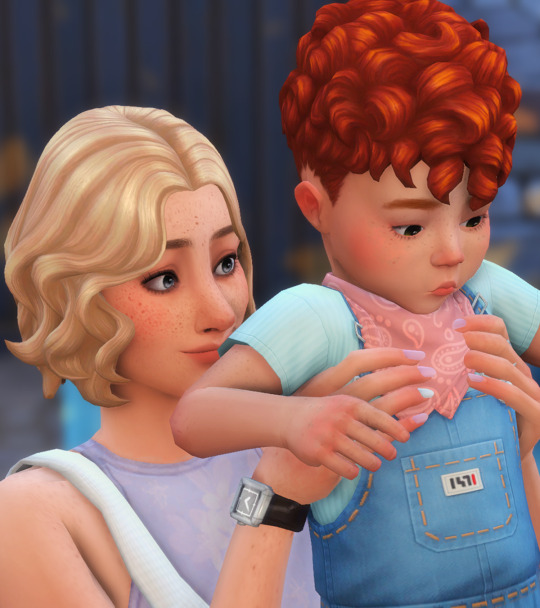
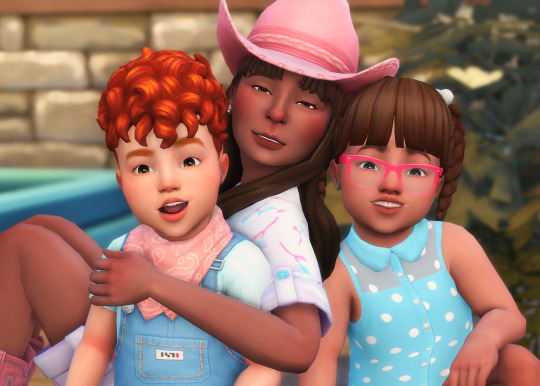


it's maddox's birthday 🎂 and the whole family put on their cowboy boots to come and celebrate at the ranch !!! 🎉
beginning | next
#i think this is also the first introduction#to margot's daughters#they're in the next post too#gen 3#rossi legacy#legacy spin-off#valerie knight#*maddox knight#*maxon knight#*madison unger#*tori basu#*lizzi basu#eugene knight#rosa knight#alessa knight#margot knight#ts4#ts4 legacy
3 notes
·
View notes
Text


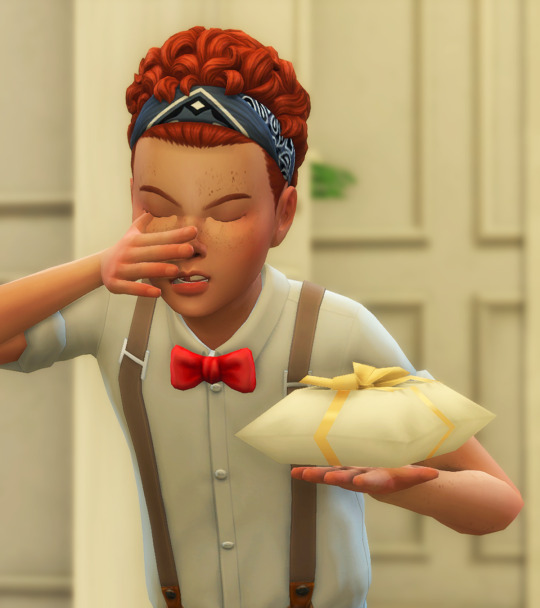
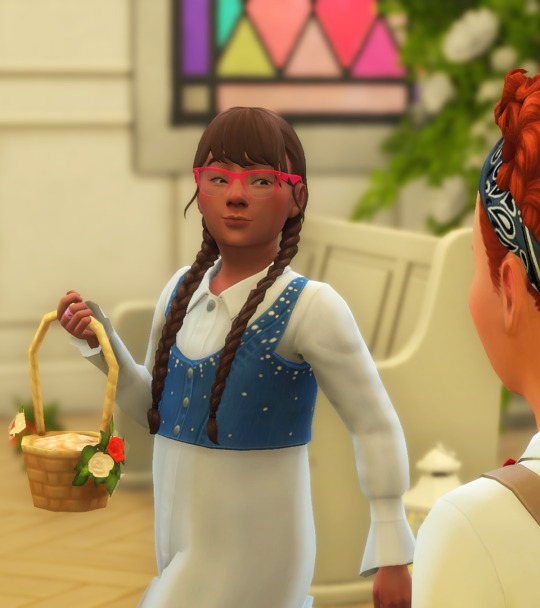
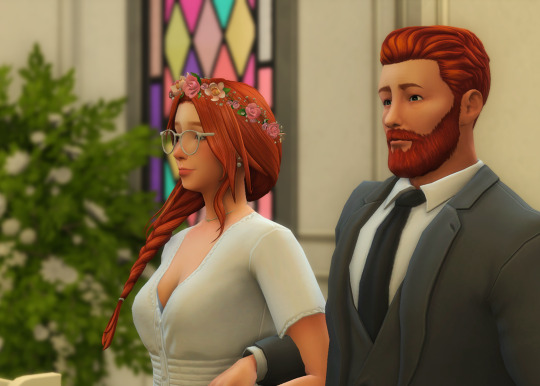
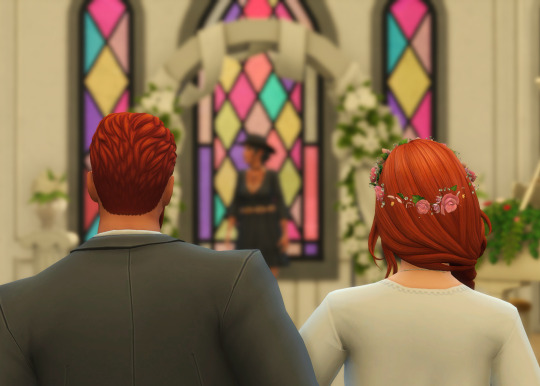

welcome to my first ever real attempt at doing a wedding post-MWS !! nothing will go wrong !! 🤪
beginning | next
#im obsessed with lizzi's smug expression..#ts4#rossi legacy#legacy spin-off#gen 3#wedding arc#ts4 horse ranch#ts4 gameplay#ts4 wedding#legacy gameplay#the sims 4#valerie knight#maxon knight#mariella knight#*maddox knight#*lizzi basu#eugene knight#fun fact !!! her mother didnt even show up 😭😭#so we're off to a great start !!
1 note
·
View note
Text
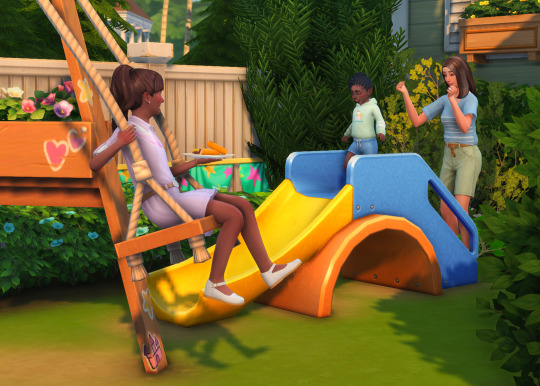




technically second half of the birthday party, but mostly just the kids getting to play around outside together 💗
beginning | next
#rossi legacy#legacy spin-off#gen 3#*tori basu#*riven anansi eggleston#alessa rossi#maxon knight#*lizzi basu#*currywurst the dog#*yuna mori rossi#i had to add yuna#even if she's BLURRY IN THE BACKGROUND
1 note
·
View note
Note
Not a confession: Mods, who are your most favorite LIs ever? You can only list your top 5, no cheating! 🤭
Hi !! mod lizzie speaking, here's mine, in no particular order ;
Maria Theresa (Vying for Versailles)
John Roberts (Theodora)
Ratan Vaish (Kali: Call of Darkness)
Liz Taylor (On Thin Ice)
Saraswati Basu (Kali: Flame of Samsara)
also here are mod lyn's :)
Lawrence Barkley (Theodora)
Amrit Doobay (Kali: Call of Darkness)
Tate Marshall (On Thin Ice)
Murphy (Rage of the Titans)
Vanora Buenaventura (Heart of Trespia)
thank you for the ask, anon 💓 !
12 notes
·
View notes